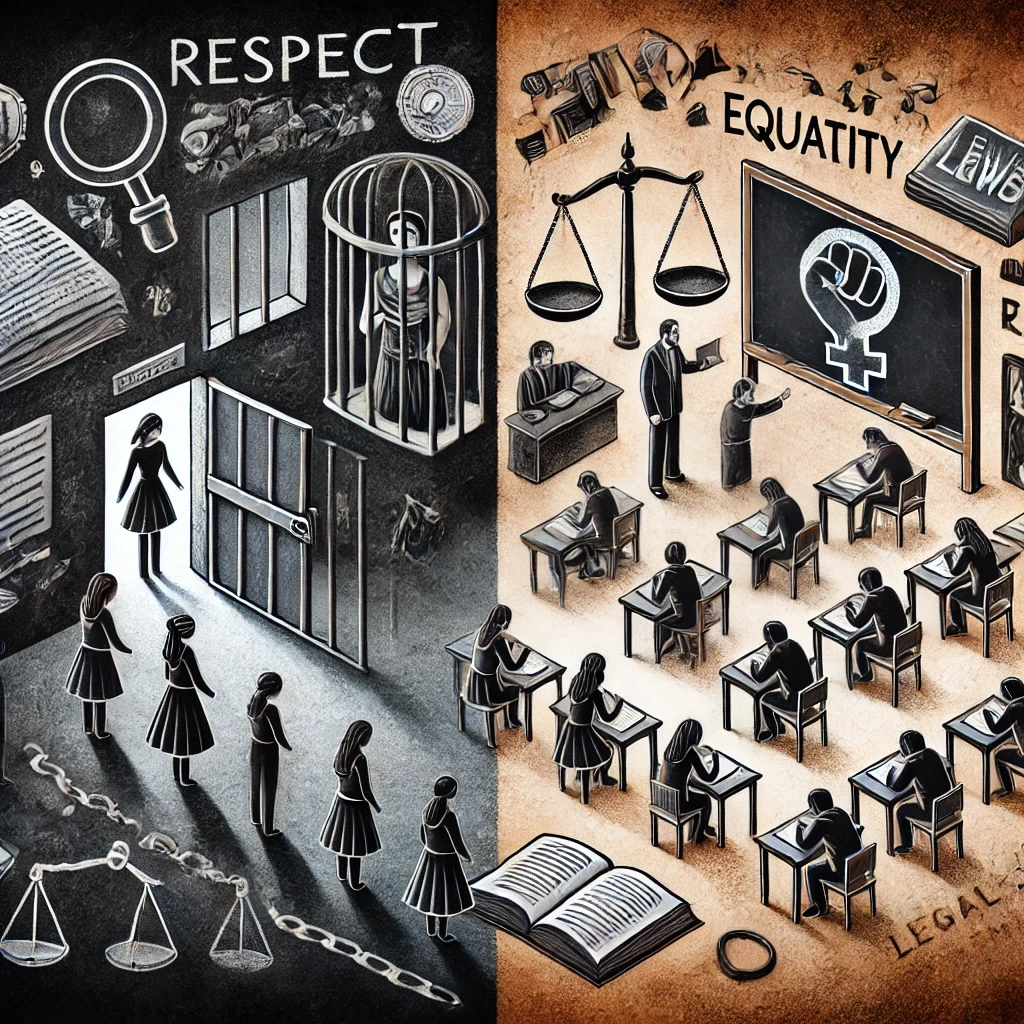The rumors of a rape incident at Punjab College Lahore, allegedly involving a security guard, have sent waves of concern across social media. Whether this was merely a rumor or a fact being covered up, the conversation that followed reveals a troubling trend: many people believe that the solution to preventing rape is to create separate universities for women. It’s a sentiment echoed not only in Pakistan but in many parts of the world. But what does this say about our approach to solving sexual violence?
A Culture of Separation
The idea of separate universities seems to offer a way to protect women from harassment. But if this is the solution, then why stop there? Should we create separate homes for women where they live in isolation, separate streets where they can walk safely, separate hospitals, separate markets, separate buses and trains? The logical extreme of this thinking is a world where men and women cannot coexist because we’ve failed to teach men how to behave.
Segregation may create a temporary illusion of safety, but it does nothing to address the root of the problem: the lack of respect for women and the failure to hold perpetrators accountable. By promoting segregation, society is merely telling women to stay out of harm’s way, instead of demanding that men stop causing harm.
The Real Issue: Education and Accountability
Why aren’t we, as a society, focusing on teaching men to respect women? Why are we not implementing and enforcing laws that hold people accountable for sexual harassment and violence? When we suggest separation as the answer, we shift the responsibility onto women, implying that they must avoid men to stay safe. This approach avoids addressing the root cause of gender-based violence—misogyny, entitlement, and a lack of proper education on consent and respect.
The truth is, women have the right to exist in public spaces, to pursue an education, to work, to shop, and to travel without fear. The responsibility to create a safe society should fall on everyone, but particularly on men, who need to be held accountable for their actions. This starts with education at an early age, teaching boys about consent, equality, and respect for women as individuals with their own agency.
The Role of Laws and Institutions
Beyond education, we need stronger enforcement of laws to protect women. Institutions, whether they are colleges, workplaces, or hospitals, must have clear policies and mechanisms to deal with harassment and assault. Perpetrators need to face consequences, and survivors need to be supported, not silenced.
Unfortunately, in many cases, incidents are either covered up to protect reputations or downplayed to avoid public outcry. But by doing so, we fail to deter future crimes and deny women the justice they deserve. A culture of silence only emboldens perpetrators, while leaving women more vulnerable.
Changing the Narrative
The narrative must shift from “protecting women” to “teaching men.” We cannot continue to treat women as fragile beings that need to be hidden away for their own safety. Instead, we need to teach boys and men that women are equal, that their rights and boundaries must be respected, and that violence of any kind is unacceptable.
Efforts should focus on creating a culture of respect and responsibility, where everyone can coexist without fear. This involves comprehensive reforms—legal, educational, and societal. Only then can we move toward a future where women are safe not because they’ve been segregated, but because society has learned to treat them with the respect and dignity they deserve.


very well narrated. you highlighted the very main points the society should learn and the major part for learning implies on men. They should learn how to respect a women and this should start from every house like it should be the responsibility of a father that he teaches their sons that how to respect their mother. But women should learn how to appreciate the good.
Thank you for your thoughtful comment! I agree that respect begins at home and that both men and women play crucial roles in fostering it. Your insights are truly appreciated!